Ho Chi Minh City is one of the localities with the largest number of higher education institutions in the country. Over the past 50 years, along with the trend of expanding the scale and increasing the number of higher education institutions, important achievements in the development of higher education include promoting training towards international standards and early implementation of high-tech training, meeting the requirements of national development. Along with that, the research field at schools has been focused on investment, both in terms of human resources and laboratory facilities; thereby making important contributions to promoting the development of science and technology.
On the occasion of the 50th anniversary of the Liberation of the South and National Reunification Day (April 30, 1975 - April 30, 2025), VNA reporters have written a series of two articles mentioning some outstanding results as well as training and research orientations at higher education institutions in Ho Chi Minh City, aiming to provide high-quality human resources for the country in the process of development and integration.
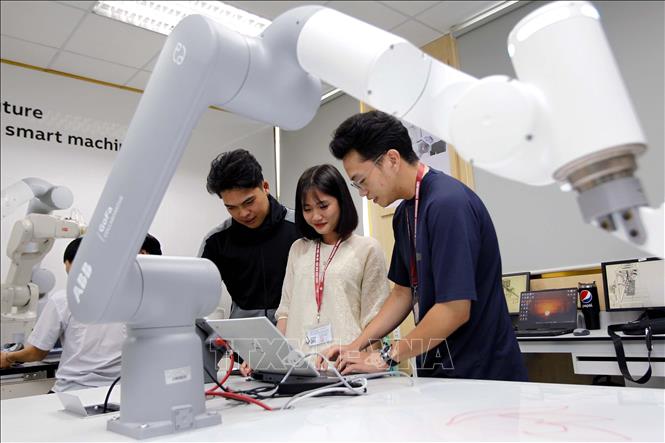
Lesson 1: Implementing a breakthrough strategy, aiming for international standards
High-quality human resources are the key factor for sustainable development. In the context of deep international integration and the need for fundamental and comprehensive innovation, higher education institutions in Ho Chi Minh City are implementing a breakthrough strategy to develop human resources with skills and knowledge suitable for global development trends.
Training towards international standards
Training programs aiming at international standards are one of the key solutions to train high-quality human resources, meeting the needs of national development in the context of globalization. Many universities identify the internationalization of education in training activities as a strategic task; in which, promoting the accreditation of training programs according to international standards is a focus of the schools.
As a leading university of engineering and technology in the South, the development and standardization of training programs according to international standards is one of the outstanding results in the training work of the University of Technology, Ho Chi Minh City National University in recent times. According to Professor, Dr. Mai Thanh Phong, the school's principal, promoting internationalization, the school has 22 training majors entirely in English with about 23% of university students participating. Teaching is also implemented according to the co-teaching model with foreign lecturers. Each year, more than 100 courses are taught by foreign lecturers. The school has been recruiting full-time foreign lecturers to enhance internationality in training. International exchange activities for students and lecturers, and personal capacity development programs for students are also enhanced. By 2024, the school will have 66 internationally accredited training programs (ABET, ASIN, AQAS, FIBAA, CTI, AUN-QA), leading the country.
In the coming period, the school has identified building a modern training program, enhancing student experience, and improving international readiness for students and the school as strategic highlights to train high-quality human resources at world-class standards. One of the goals is for 30% of students to study international training programs; at least 72% of students to achieve outstanding foreign language standards.
At Ho Chi Minh City University of Industry, training programs are also built according to international standards. Dr. Nguyen Trung Nhan, Head of the school's Training Department, shared that the school's training program is interdisciplinary. Along with core subjects, the school has many open, elective subjects so that graduates can approach careers in many different directions, in the context of rapid changes in technology. The school also focuses on international accreditation of training programs.
Currently, the school has 23 programs that meet AUN accreditation standards, 6 programs that meet ABET accreditation standards; aiming for all training programs to be internationally accredited. The school enhances international cooperation activities among students and lecturers through overseas internships, organizing international academic programs, etc.
Quality assurance and quality assessment have also been given special attention by the International University, Vietnam National University, Ho Chi Minh City since its inception. The University has been recognized as meeting ASIIN (2023), AUN-QA (2018) and MOET (2016) standards. Nearly 80% of undergraduate training programs have been successfully assessed by prestigious assessment and assessment organizations at home and abroad.
Meet practical requirements
Grasping the need for high-quality human resources in response to sustainable development requirements, universities have promptly deployed training in high-tech industries, key fields such as artificial intelligence (AI), semiconductors, robots, etc. and promoted interdisciplinary training.
For more than 20 years, Ho Chi Minh City University of Technology, Vietnam National University, has been implementing training on microchips by integrating this content into a number of training majors under the Faculty of Electrical and Electronics. In response to the urgent need for high-quality human resources in microchip design, in the 2024-2025 school year, the school officially enrolled two new training majors: Microchip Design (undergraduate) and Semiconductor Microchip (postgraduate). A year earlier, this program had been operated through the division of students studying in their second year in existing microchip majors. The school's two new training programs are expected to contribute to increasing the number of engineers for the semiconductor microchip design industry nationwide.
Dr. Huynh Phu Minh Cuong, Deputy Head of the Faculty of Electrical and Electronics, University of Technology, Vietnam National University, Ho Chi Minh City, shared that microchip and semiconductor design is one of the areas that the school focuses on investing in both training and research activities. This is also a strategic area for the country at the present stage.
Along with continuing to promote traditional training majors, in recent years, the University of Science, Vietnam National University, Ho Chi Minh City has developed new training programs, linked to social needs, such as: Artificial Intelligence (AI), Data Science... The school is one of the leading units in opening training majors on AI (undergraduate training from 2021 and master's and doctoral training from 2022). The training program includes subjects on machine learning, natural language processing, computer vision and intelligent systems. The data science training program is oriented to meet social needs...
Many other schools are also promoting high-tech training, both at the specialized training level and in an integrated manner. Ho Chi Minh City University of Technical Education has been implementing a robotics training program since 2019. In 2024, the school will enroll the first class for the Microchip Design program. Ho Chi Minh City University of Industry is promoting high-tech training, notably data science and AI, IoT and applied AI...
Along with joining hands with businesses in training, higher education institutions and localities also promote cooperation with the goal of training human resources to meet practical requirements. In order to promote university resources in training high-quality human resources, in 2017, Ho Chi Minh City was the first locality to establish the Council of Rectors of universities in the area. The city has ordered many schools to develop projects and pilot international-level human resource training in a number of fields according to development needs such as: Information Technology - Communications; Artificial Intelligence; Finance - Banking; Urban Management...
As a pilot unit implementing international-level human resource training in the Finance - Banking sector, Ho Chi Minh City University of Economics has developed a high-quality training program that closely follows international standards; emphasizing the close combination of theory and practice, helping students meet job requirements, quickly adapt to the development of technology and the global integration process.
According to Professor, Dr. Su Dinh Thanh, Director of Ho Chi Minh City University of Economics, the unit has invested heavily in improving the quality of its teaching staff, especially in coordinating with foreign lecturers from prestigious universities to participate in training. In particular, the close cooperation between the training institution and businesses is an important highlight in the implementation of this program. Businesses will actively participate in the training process, providing opportunities for students to visit, practice, intern and work. This not only helps students enhance their practical knowledge and skills, confidently enter the labor market after graduation, but also creates conditions for businesses to recruit high-quality talents.
Final article: Promoting research and development of science and technology
Source: https://doanhnghiepvn.vn/tin-tuc/trung-tam-dao-tao-nhan-luc-chat-luong-cao-bai-1-thuc-hien-chien-luoc-dot-pha-huong-den-chuan-quoc-te/20250502024331199


![[Photo] Thousands of Buddhists wait to worship Buddha's relics in Binh Chanh district](https://vphoto.vietnam.vn/thumb/1200x675/vietnam/resource/IMAGE/2025/5/3/e25a3fc76a6b41a5ac5ddb93627f4a7a)



![[Photo] Bustling construction at key national traffic construction sites](https://vphoto.vietnam.vn/thumb/1200x675/vietnam/resource/IMAGE/2025/5/2/a99d56a8d6774aeab19bfccd372dc3e9)


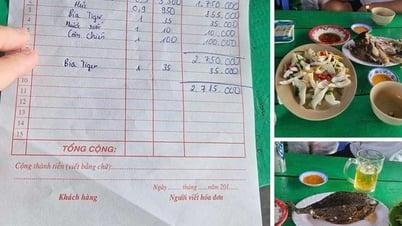










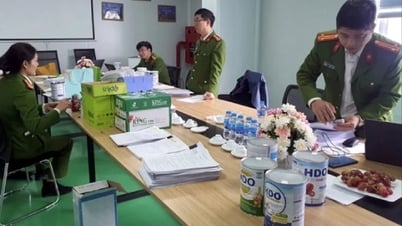


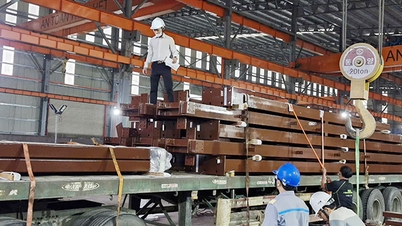
![[Photo] "Lovely" moments on the 30/4 holiday](https://vphoto.vietnam.vn/thumb/1200x675/vietnam/resource/IMAGE/2025/5/1/26d5d698f36b498287397db9e2f9d16c)



















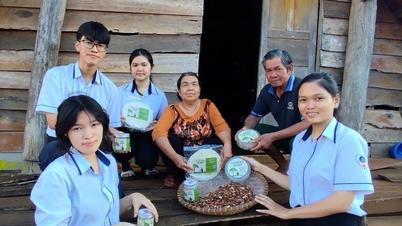












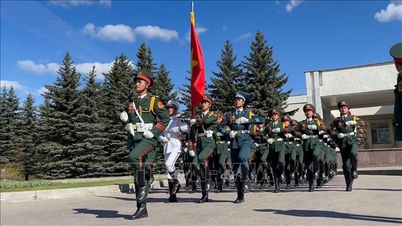
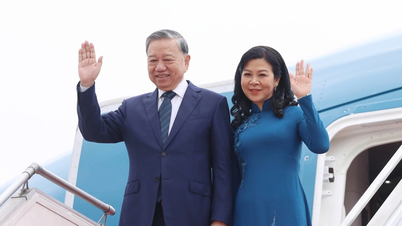


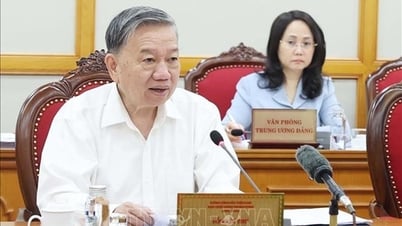
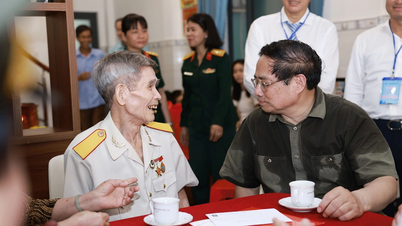

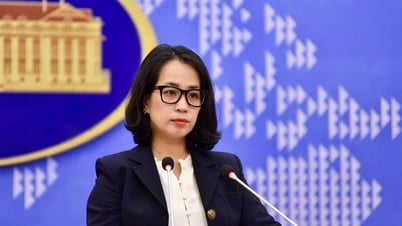

















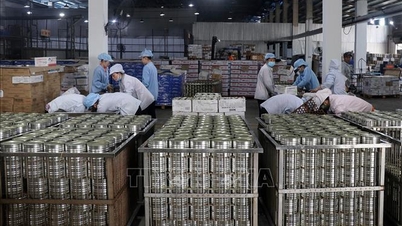










Comment (0)